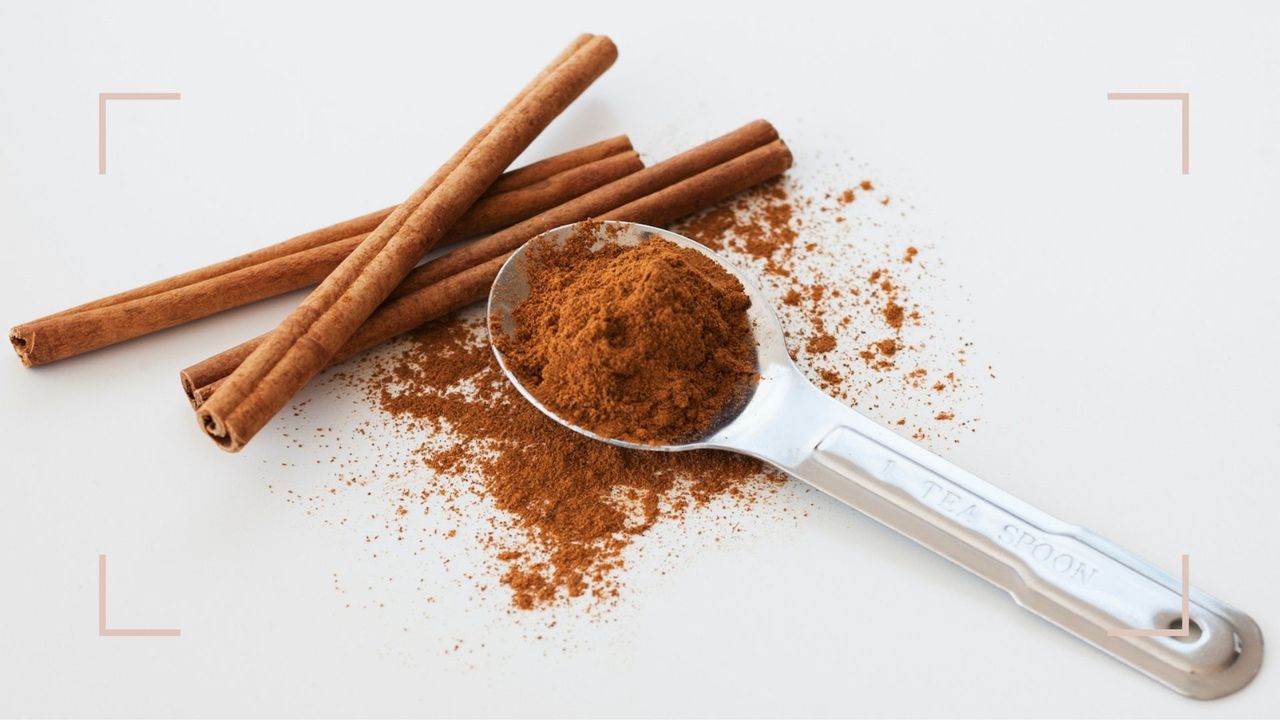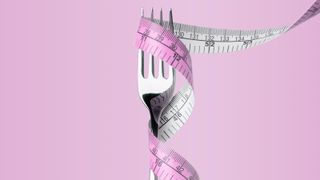The health benefits of cinnamon—plus, delicious ways to get your daily fix
Are you missing out on the benefits of cinnamon? Find out how this super-spice can improve your health


One of the most obvious benefits of cinnamon is that it tastes great and smells equally delicious. You can’t beat a waft of it from freshly baked pastries, or its sweet, woody flavor when swirled through your favorite coffee.
But not only is cinnamon warm, nourishing, and adds flavor to hearty meals and sweet treats—this delicious seasonal spice is also a bit of a superfood, too. Keen to learn why? We asked our experts: is cinnamon good for you? And they shared plenty of valid reasons why we all should be adding it to our diets. From curbing inflammation and improving digestion to pepping up tired skin, research links this spice to numerous feel-good gains. You might also want to try cinnamon for weight loss thanks to its metabolism-boosting properties (our guide on how to lose a stone in a month safely is packed with great tips to help with this, too).
The health benefits of cinnamon
It’s not a new discovery that this spice-rack staple has powerful medicinal effects. Cinnamon has been used for centuries to treat both minor ailments as well as more serious health conditions. In fact, due to its wide-ranging benefits, the ancient Egyptians considered this spice more precious than gold!
You might also like
At woman&home we want to champion women's health. For relatable, practical, and honest advice on topics that affect women, take a look at our guides to:
• supplements for sleep that really work
• the benefits of walking for weight loss
• how yoga for beginners boosts health
Around 90% of the world’s Ceylon cinnamon is produced in Sri Lanka and it comes from the bark of the cinnamomum verum tree. Cassia cinnamon is from the bark of the cinnamomum cassia tree that originates in China. Both types are peeled, dried in the sun and sold as ground powder or sticks. Cassia is the stronger, hotter, cheaper version, while Ceylon cinnamon is lighter, sweeter, and typically more expensive.
“Cinnamon has been shown to be antibacterial and anti-fungal, which is why it is used so frequently in Chinese medicine and is favored by alternative therapists,” says nutritionist Rob Hobson, working with Healthspan. "These properties are thanks to the main active compound called cinnamaldehyde that’s found in the bark. Cinnamaldehyde oil is also responsible for cinnamon’s unique taste and smell.”
Consuming more cinnamon in your diet can help to:
- Fight inflammation
- Lower blood sugar
- Aid weight loss
- Boost your skin
- Help gut health

1. Fight inflammation
When left unchecked, inflammation in the body can play havoc with our health. It's a leading cause of common conditions including IBS, arthritis, asthma and depression. Chronic inflammation is also a risk factor for strokes, cancer, cardiovascular disease and the acceleration of Alzheimer’s stages.
Sign up for the woman&home newsletter
Sign up to our free daily email for the latest royal and entertainment news, interesting opinion, expert advice on styling and beauty trends, and no-nonsense guides to the health and wellness questions you want answered.
A sedentary lifestyle, poor diet and infection can all trigger an inflammatory effect in the body, but studies show that cinnamon boosts anti-inflammatory activity which works to reduce the health-damaging consequences of inflammation.
Cinnamon is packed with antioxidants called polyphenols, which are powerful anti-inflammatories, explains Catherine Faraday, a nutrition and lifestyle therapist. “Because inflammation is the main cause of many diseases, boosting your intake of polyphenols can help protect the body from disease,” she says.
2. Lower blood sugar
Hyperglycaemia is when the level of sugar in your blood gets too high. This can lead to serious health conditions, such as diabetes. Research shows that cinnamon can improve blood sugar levels in diabetics and one study revealed it can lower the risk of developing type 2 diabetes for those with pre-diabetes.
“Cinnamon may improve glucose tolerance through an effect on insulin receptors,” explains GP, Dr Sarah Brewer. “The results from 10 trials involving people with type 2 diabetes show that cinnamon significantly lowers fasting glucose levels compared with a placebo.”
If you are concerned about your blood sugar levels, always speak to your doctor before making changes to your diet.
3. Aids weight loss

Trying to drop a dress size? Because lowering blood sugar levels and increasing insulin sensitivity play a key role in weight loss, a sprinkle of daily cinnamon may help you to stay slim. An American study suggests the spice can counterbalance the effects of a high-fat diet and slow down the fat-storing process.
Cinnamon could be also useful to boost your workout motivation. It is thought that this super-spice helps to improve metabolism, which in turn speeds up the rate at which you burn calories—meaning better results when you exercise. Another big benefit of cinnamon is that it contains fiber, which helps you to feel fuller for longer and can reduce the food cravings that often lead to our overeating, says Hobson.
4. Boost your skin
Looking for a natural way to improve your complexion? When added to your diet, cinnamon stimulates the blood vessels and supports blood flow to the skin, giving you that sought-after healthy glow. Used topically, cinnamon can also give tired skin an instant boost, while its antibacterial properties mean it’s brilliant at preventing break-outs if you suffer from adult acne.
One study in Indonesia found combining cinnamon with honey brings even further benefits for spot-prone skin. You can try it with a D.I.Y face mask—blend the two ingredients together into a paste and apply to your face for ten minutes, before removing with a warm, damp cloth.
5. Help gut health

For tummy troubles such as bloating, stomach aches, and excess wind, cinnamon has been found to bring relief and is commonly used in Ayurvedic medicine to help treat gut issues, says Hobson.
Researchers at Australia's RMIT University discovered the spice has the potential to lower carbon dioxide levels in the stomach to aid digestion.
Cinnamon also has powerful prebiotic properties that improve gut health long-term. “It can help fight off bad bacteria, promote the growth of good bacteria and keep the gut microbiome healthy,” explains Faraday.
Feeling anxious? There's evidence to show that gut health and anxiety are closely associated, so the gut-improving effects of cinnamon may work to ease your mood, too.
Easy ways to get the benefits of cinnamon
The good news is by simply adding cinnamon to your meals and drinks, you'll tap into all of these health benefits. A teaspoon per day is all you need—and it’s important not to overdo it, especially when giving it to children. “It can cause an allergic reaction in some people if you have too much,” warns Faraday. “Never eat it on its own either.”
Freshness is also key. There’s not much point in using stale, tasteless cinnamon as that means it’s lost most of its health benefits too. “Check the use-by date on that old fusty jar in the back of the spice rack,” suggests Together Health nutritionist, Lola Biggs. “Ground cinnamon will start to lose flavor after a few months while whole sticks last for about a year. Keep it in an airtight jar to retain freshness.”
So, whether you're keen to boost your health or if you just love the taste, there are many different ways you can enjoy this spice.
Easy ways to include cinnamon in your diet

Try these simple ideas for getting your daily dose:
- Sprinkle on porridge, cereal or toast.
- Stir through a pot of Greek yogurt.
- Add cinnamon sticks to warming stews, casseroles and curries.
- Sprinkle over crumble toppings and in banana bread.
- Swirl through frothy coffees and hot chocolates.
woman&home thanks nutrition and lifestyle therapist Catherine Faraday, Healthspan nutritionist Rob Hobson, Dr Sarah Brewer, and Lola Biggs, a dietician at Together Health, for their time and expertise.
Senior Health Writer Ali Horsfall has almost 15 years experience as a journalist and has written for national print titles and women’s lifestyle brands including woman&home, Woman, Woman's Own, BBC magazines, Mothercare, Grazia and The Independent. She currently specialises in health and fitness content and loves sharing the best expert advice on staying well.